Divided America: Diverse millennials are no voting monolith

America’s oldest millennials – nearing 20 when airplanes slammed into the World Trade Center – can remember the economic prosperity of the 1990s, and when a different Clinton ran for president. The younger end of the generation – now nearing 20 – can’t recall a time without terrorism or economic worry. Now millennials have edged out baby boomers as the largest living generation in U.S. history, and more than 75 million have come of age. With less than three months to Election Day, the values of young Americans are an unpredictable grab bag. What they share is a palpable sense of disillusionment. As part of its Divided America series, The Associated Press interviewed seven millennial voters in five states where the generation could have an outsized influence this fall. They are a mosaic, from a black Nevada teen voting for the first time to a Florida-born son of Latino immigrants to a white Christian couple in Ohio. These voters illustrate how millennials are challenging pollsters’ expectations. “Millennials have been described as apathetic, but they’re absolutely not,” said Diana Downard, a 26-year-old voting for Hillary Clinton. “Millennials have a very nuanced understanding of the political world.” Just 5 percent of young adults say that America is “greater than it has ever been,” according to a recent GenForward poll. The first-of-its kind survey of young people between the ages of 18 and 30 was conducted by the Black Youth Project at the University of Chicago with the Associated Press-NORC Center for Public Affairs Research. Briana Lawrence, a 21-year-old videographer and eyelash artist from the South, wants America to return to what it was. A recent North Carolina Central University graduate, she’s voting for Clinton. She was just 7 on Sept. 11 and the aftermath of the attacks is the only time she remembers the nation feeling united. “My biggest hope for this country is for us to come back together as a community,” she said. That’s hard when people like her begin adulthood thousands of dollars in debt. Economic issues are huge with this group, since many are saddled with student loans and struggle to find jobs. Only 8 percent of millennials feel their household’s financial situation is “very good,” according to GenForward’s poll. Brien Tillett, who recently graduated from a Las Vegas high school, is 18. He was only 10 when the recession hit. His single mother was hospitalized for months after a car accident and, with no safety net, the family struggled. National debt is his top concern. As a black man, he’s turned off by some of Donald Trump‘s remarks, but likes the Republican’s aggressive economic stance. He also considered voting for Clinton, but is angry about her use of a private email server while Secretary of State. Unsure at first, he recently decided on Clinton. Anibal David Cabrera wouldn’t think of voting outside his party. The son of a Honduran mother and Dominican father, he graduated from college in 2008. He was a finance major, but the economic collapse dried up jobs. Now 31 and living in Tampa, Florida, he finally found an accounting position at a small firm. He feels he’s entering the prime of his life a few steps behind, through no fault of his own. He’s backing Trump and prays the candidate keeps promises and boosts the economy. “That is something my generation has kind of never seen,” he said. Shared pain doesn’t lead to shared views. Millennials’ disdain for traditional party affiliation means that half describe themselves as independents, according to a 2014 Pew Research report – a near-record level of political disaffiliation. They tend to be liberal on social questions such as gay marriage, abortion and marijuana legalization. Yet they skew slightly conservative on fiscal policy and are more in line with other generations on gun control and foreign affairs. Trip Nistico, a recent Colorado law school graduate, is a gun rights advocate who visits shooting ranges – but also supports in same-sex marriage. He backed President Barack Obama in 2008 and Mitt Romney in 2012. The 26-year-old is voting for Trump this year. Still, Trump remains unpopular among millennials and nearly two-thirds of Americans between the ages of 18 and 30 believe the Republican nominee is racist, according to GenForward’s poll. Views of Hillary Clinton also were unfavorable, though not to the same extent. Bill and Kristi Clay, parents of two young boys and devout Christians from rural Ohio, have struggled to pick a candidate who matches their values. Kristi Clay opposes same-sex marriage and abortion and names those as her top issues. Yet the 32-year-old school librarian reluctantly leans toward Clinton, because she feels Trump is materialistic and prefers the Democratic views on immigration and poverty. Though she and her 33-year-old husband are feeling “pessimistic” about this election, both say they will vote anyway. Whether their millennial brethren do the same is unknown. Some are disenchanted that progressive Bernie Sanders, who ran against Clinton in the Democratic primary, is out of the race. The millennial vote rose steadily beginning in 2002 and peaked in 2008. In 2012, however, just 45 percent of millennials cast ballots and participation has leveled off or dropped since, said John Della Volpe, director of polling at Harvard University’s Institute of Politics. “They have a somewhat different perspective in terms of politics,” he said. “It hasn’t really worked. They haven’t been part of a movement that’s been effective.” Republished with permission of the Associated Press.
Fourth highest level of toxic PFAS chemicals found in Alabama’s drinking water

On May 19, the Environmental Protection Agency (EPA) issued a health advisory that eight Alabama water systems contained two man-made chemicals that have been linked with cancer and other health problems when ingested for long periods of time. Now, only three months later, a new Harvard University study has found Alabama has the fourth-highest concentration of these toxic chemicals in its water supply, behind only California, New Jersey, and North Carolina. The poisonous chemicals, polyfluoroalkyl and perfluoroalkly, also known as PFASs, exceed federally recommended safety levels in public drinking-water supplies. According to the study, chemicals have been linked to cancer, hormone disruption, high cholesterol, obesity and other health problems. “These compounds are potent immunotoxicants in children and recent work suggests drinking-water safety levels should be much lower than the provisional guidelines established by EPA,” said Elsie Sunderland, senior author of the study and associate professor at both the Harvard Chan School and SEAS. In Alabama, at least 100,000 people have been affected by the presence of PFAS-contaminated water. “For the last three years, the levels of PFOS, PFOA and emerging contaminants in surface water have been monitored in all drinking water systems serving more than 10,000 people and in selected systems serving fewer people,” said the Alabama Department of Public Health following the May advisory. “ADPH will continue to review all studies and recommendations related to ingestion of these chemicals through public water supplies. ADEM is working with the named water systems to collect additional monitoring data where appropriate and to identify methods to reduce the water concentration of PFCs to a level below the final health advisory recommendation.”
Racism and talk of religious war: Donald Trump staff’s online posts
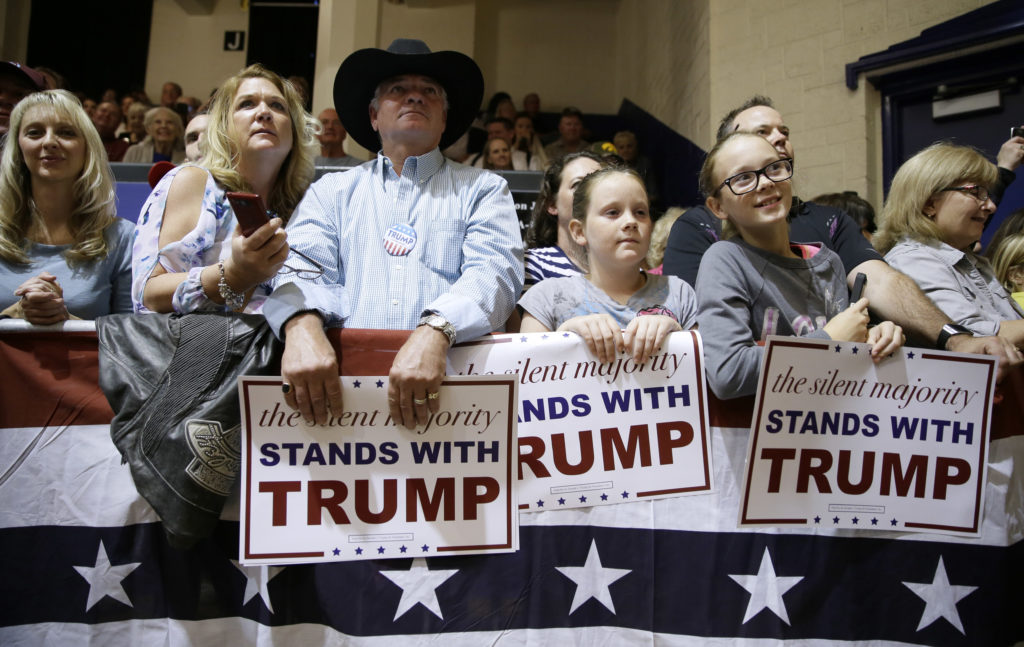
Donald Trump‘s paid campaign staffers have declared on their personal social media accounts that Muslims are unfit to be U.S. citizens, ridiculed Mexican accents, called for Secretary of State John Kerry to be hanged and stated their readiness for a possible civil war, according to a review by The Associated Press of their postings. The AP examined the social media feeds of more than 50 current and former campaign employees who helped propel Trump through the primary elections. The campaign has employed a mix of veteran political operatives and outsiders. Most come across as dedicated, enthusiastic partisans, but at least seven expressed views that were overtly racially charged, supportive of violent actions or broadly hostile to Muslims. A graphic designer for Trump’s advance team approvingly posted video of a black man eating fried chicken and criticizing fellow blacks for ignorance, irresponsibility and having too many children. A Trump field organizer in Virginia declared that Muslims were seeking to impose Sharia law in America and that “those who understand Islam for what it is are gearing up for the fight.” The AP’s findings come at a time when Trump is showing new interest in appealing to minority voters, insisting he will be fair in dealing with the 11 million people in the U.S. illegally and explicitly pitching himself to African-Americans, saying “what do you have to lose?” Since Trump declared his candidacy last summer, he has paid about 120 people on his campaign, according to Federal Election Commission filings. Over the weekend, the campaign reported about 70 people drawing salaries, a number that did not include a few dozen more working as consultants. A slew of hires in early August were not yet reflected in Trump’s filings. The AP was able to review the accounts of only a minority of Trump staffers: Others set their accounts to private, some could not be found or identified with confidence as Trump campaign employees. The AP also reviewed the public social media accounts of more than three dozen employees of Hillary Clinton‘s far larger campaign staff and found nothing as inflammatory. One staffer said Trump’s style of speaking reminded him of a roommate who had taken too many hallucinogenic mushrooms. AP also reviewed images attached to more than 19,000 stolen internal emails from the Democratic National Committee for racially or religiously inflammatory memes, finding nothing of note. The Clinton campaign declined to comment on its procedures for vetting staff. It employs more than 650 people, according to its FEC filings. One month ago, the AP sent written questions to the Trump campaign with examples of the posts. The campaign has not commented, despite several requests since. Veteran Republican campaign operatives said keeping an eye on staffers’ social media postings has long been a standard practice. “In vetting a prospective staffer, I’m not sure where the line would be for not hiring someone or simply asking them to take something down from social media, but there is a line,” said Beth Myers, a former top Mitt Romney campaign aide. During Myers’ work for Mitt Romney in the 2008 and 2012 presidential campaigns, she said, social media was newer, so indiscrete or embarrassing photos were more often concerns than inflammatory views. Even outside social media, she stressed to the campaigns’ staffers that what they said and did would reflect on the candidate who employed them. “Don’t put anything in an email that you wouldn’t want on the front page of The New York Times,” she recalled telling staff. “The same thing I told my kids, I told my staffers.” The AP found little questionable content in the ranks of Trump’s top officials. The campaign’s social media director, Dan Scavino, tweets prolifically but avoids discussing race and religion. Field organizers representing Trump’s campaign around the country, however, have had no such reservations, either before or during their employment with the campaign. Their judgment matters beyond the campaign because the paid staff of winning presidential candidates often receives jobs in the next administration. Before being tapped as statewide director of coalitions, Craig Bachler of Bradenton, Florida, posted jokes in 2015 about Mexican accents superimposed over pictures of an overweight man wearing a sombrero. Bachler was named by the campaign as official staff in November, though there is no record he has been paid for his work. Bachler did not respond to a request for comment via Facebook or a message left at his office voicemail. After AP’s inquiries, Bachler blocked access to an AP reporter, and his Facebook account — which included a photo of Bachler with Trump — was scrubbed to remove the offensive post. Teresa Unrue, a field organizer and graphic designer in Myrtle Beach, South Carolina, for Trump’s advance team, shared a video on her Facebook account July 11 — the week before the Republican National Convention — of a black man eating fried chicken while shaming fellow black people. “Why are you mad about slavery?” the man asks. “Y’all weren’t no damn slaves.” “Had me crack’n up!! Thank you!” Unrue wrote of the video. “Please share this with people.” In a short phone conversation, Unrue said she tried to keep her personal social media comments positive and referred questions to the campaign. Some posts fixated on stories of black-on-white violence with claims that news about such crimes was being suppressed. “How about this little white boy being murdered by a black man,” grassroots organizer Annie Marie Delgado of Palm Beach Gardens, Florida, wrote in December 2014 post, one of a number highlighting crimes against white people before Trump declared his candidacy. Delgado also shared a discredited, hoax photo of the State Department’s Kerry with Jane Fonda, and commented: “I say hang them!” She was paid $11,146 through April, according to campaign records. Fear or dislike of Muslims was a recurring theme. Though Trump at one point proposed temporarily barring foreign Muslims from entering the country and scrutinizing the activities of mosques, he has sometimes distinguished Islamic extremists who pose a risk and those
Katherine Robertson: If the people only knew

“THE PEOPLE want to vote!” — the most oft-repeated catchphrase of the lottery debate. Even politicians who declare themselves personally opposed to a state-run lottery try to justify their support of it because “THE PEOPLE want to vote.” But politicians know full well that they have not been honest with THE PEOPLE when it comes to a lottery — that this debate isn’t over whether or not they should be able to buy scratch-offs in Alabama. No, for politicians and for bureaucrats, the lottery is merely a means to an end — and that end is bigger government. If THE PEOPLE only knew what was really going on in Montgomery, they would staunchly oppose giving politicians more of their money to spend. Despite the fact that Alabama’s government spends more money every single year, to most politicians and bureaucrats, nothing in state government has been or will ever be “fully funded.” Around the State House, these men and women flippantly and unapologetically discuss getting their hands on more of THE PEOPLE’s money — never mind that most Alabamians can’t afford to give away more. This year, the state spent $29 billion of THE PEOPLE’s state and federal tax dollars only for state leaders to then tell THE PEOPLE that Alabama faces a dire budget “crisis” over a request to spend $85 million more — a mere 0.29 percent of what has already been spent (and, if it were vital, then it could have been found). These now-annual “crises” are self-imposed by politicians who are constantly looking to pilfer more of THE PEOPLE’s money because they’ve given up on dealing with our state’s spending problem at its roots. To put it simply, the spenders have a want, but they’ve done a good job convincing THE PEOPLE that it’s a need. Attempting to reason with his colleagues on Friday, one senator reminded them government will always find a way to spend every single penny it takes in. And having more money to spend in the short term will continue to cover up the unsustainable fiscal trajectory that the state finds itself on. The government’s insatiable spending addiction will not be satiated with lottery revenue — it will be stimulated. Critical policy proposals that would help place our state on stable financial footing for the long term will not see the light of day. As a result, it won’t be long before our politicians realize that lottery revenue can’t support their spending problem. Where will they look for money next? Not only will the lottery-fueled growth in government almost instantly have to be sustained by other forms of revenue (i.e., more of THE PEOPLE’s tax dollars), but the cost of a state lottery will show up in other ways. For the state to net the governor’s $225 million estimate (more on that here), THE PEOPLE — every Alabamian 18 years of age or older — would have to spend $182 a year on lottery tickets. According to Salil Mehta, a renowned academic statistician and Ivy League professor, probability calculations indicate that an estimated 350,000 Alabamians would lose $200,000 of their lifetime savings as a result of a state lottery. Keep in mind, this is in a state with the 48th lowest median household income in the country. A state in which 19 percent of THE PEOPLE live in poverty and 25 percent receive government assistance. Who will be better off if the government is permitted to aggressively coax individuals with limited resources into wasting their money on the false hope of getting rich quick? Other states’ lotteries do exactly this — it is not speculation. What could additional government spending possibly offer THE PEOPLE to justify that level of malevolence? (And, just in case you’re thinking it, taking from those who rely on state benefits is not a clever way to recoup costs, but will leave them with even less income and further diminished means of escaping poverty.) THE PEOPLE should not be fooled into thinking the debate going on in Montgomery is over an innocuous game of chance or their freedom to play it — it’s about conning them into handing over more of their money without asking too many questions. Make no mistake, the lottery is a tax — a hidden tax, disguised as entertainment, and supplied through a state-run monopoly — and it will almost assuredly lead to more taxes as politicians are further enabled to avoid the kinds of tough decisions they were elected to make. ••• Katherine Green Robertson is Vice President of the Alabama Policy Institute (API). API is an independent, nonpartisan, nonprofit research and educational organization dedicated to the preservation of free markets, limited government, and strong families. If you would like to speak with the author, please e-mail communications@alabamapolicy.org or call (205) 870-9900.
Donald Trump says he’s not flip-flopping on immigration
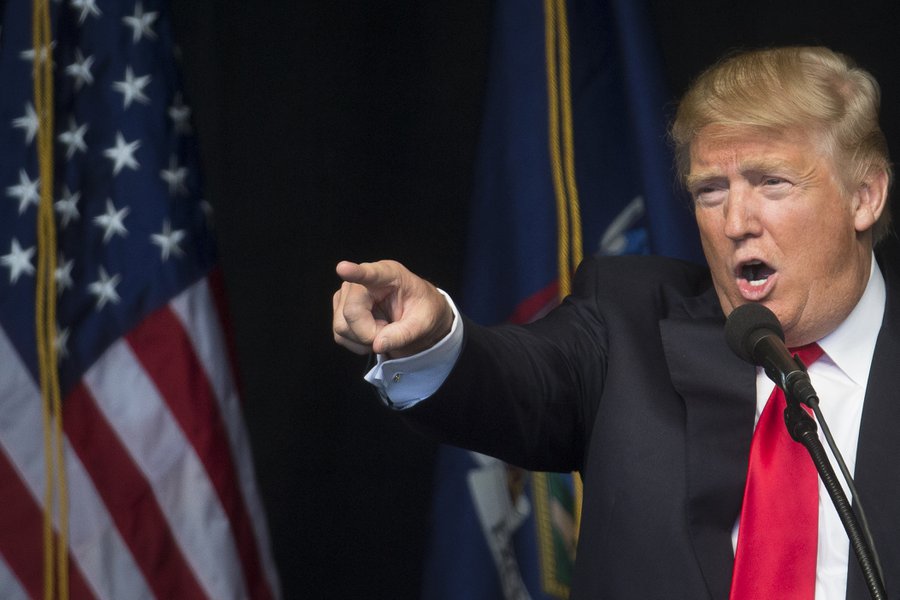
Republican Donald Trump insists that he’s not flip-flopping when it comes to his proposal to deport the estimated 11 million people living in the United States illegally – even though his new campaign manager now says his stance is “to be determined.” Trump said in an interview with Fox & Friends on Monday that he’s “not flip-flopping,” but wants to come up with “a really fair, but firm” solution. Trump had previously proposed using a “deportation force” to remove the 11 million people living in the United States illegally- a proposal that excited many of his core supporters, but alienated Hispanic voters who could be pivotal in key states. Republican leaders fear that Trump can’t win – and could drag down GOP congressional candidates – if he doesn’t increase his support beyond his white, male base. Trump met Saturday with Hispanic supporters, representatives of a community that has been wary of the billionaire businessman’s deportation proposals and his plans to build a giant wall on the U.S.-Mexico border. Questioned on whether Trump still intends to deploy the deportation force, campaign manager Kellyanne Conway said Sunday: “To be determined.” There have been previous signs that Trump might be moderating his stance on deportations. At last month’s GOP convention, the Republican National Committee‘s director of Hispanic communications, Helen Aguirre Ferre, told reporters at a Spanish-language briefing that Trump has said he will not do massive deportations. Hispanic and religious leaders who met privately with Trump ahead of the convention said he signaled that he is open to embracing a less punitive immigration policy that focuses on “compassion” along with the rule of law. Trump’s comments Monday come as Republican officials insist the GOP nominee is finally hitting his stride and will catch up with Democrat Hillary Clinton by early September, following a major shake-up to his campaign. Polls now mostly show Trump lagging Clinton by 5 percentage points or more nationally. “Donald Trump has been disciplined and mature. And I think he’s going to get this thing back on track,” Reince Priebus, the Republican National Committee chairman, said Sunday. Conway echoed Priebus’ optimism, contending that the candidate just had the best week of his campaign, “mostly because he’s able to be himself, the authentic Donald Trump.” Conway was named to her post last week in a shake-up in which the campaign chairman, Paul Manafort, resigned and conservative media firebrand Stephen Bannon, who led Breitbart News, took over as campaign chief executive. A new style was immediately evident as Trump, in a first, offered regrets for any remarks that had caused offense, stuck with his teleprompter at a series of events, and paid a visit to flood-ravaged Louisiana. Trump also announced his first ad buys of the campaign, more evidence of an acceptance of the traditional campaign elements most experts believe he will need in order to have a shot at winning. He made a direct appeal to African-American voters, insisting he wants the Republican Party to become their political home. Clinton’s campaign manager, Robby Mook, disputed claims of a turnaround in Trump’s candidacy. “We’re not seeing a pivot. Donald Trump himself said this was not a pivot. He wants to double down on letting Donald Trump be Donald Trump,” Mook said. Indeed, Trump was back to his old self on Twitter Monday morning. He went after MSNBC’s “Morning Joe,” tweeting that the show is “unwatchable!” and said its host, Mika Brzezinski, “is off the wall, a neurotic and not very bright mess!” Conway had said Sunday that Trump “doesn’t hurl personal insults.” Conway, Mook and Priebus were interviewed on ABC’s “This Week.” and Conway also spoke on CNN’s “State of the Union.” Republished with permission of The Associated Press.
AG Luther Strange announces nationwide injunction blocking White House transgender bathrooom policy
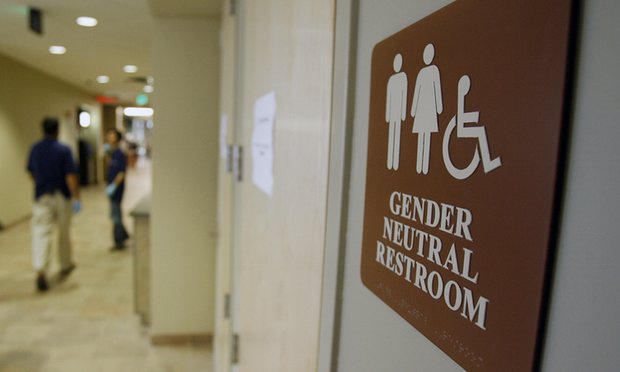
Monday morning Alabama Attorney General Luther Strange announced a U.S. judge has blocked the Obama administration guidance that transgender public school students must be allowed to use bathrooms of their gender “identity” — rather than their sex, or risk losing federal funding — granting a nationwide injunction sought by a group of 13 states, including Alabama. U.S. District Judge Reed O’Connor has granted a preliminary, nationwide injunction in response to a lawsuit filed by Texas and a number of other states. In a decision late Sunday, O’Connor explained the Obama administration failed to follow proper procedures for notice and comment in issuing the guidelines. He also said the federal guidelines had the effect of law and contradict existing legislative and regulatory texts. “The court decision is a victory for parents and children all across Alabama,” said Attorney General Strange. “I joined the multi-state lawsuit against the Obama administration in May to prevent Alabama schools from being forced to surrender their restroom access policies to social experimenters in Washington. I am pleased the federal court has agreed to our request to stay the controversial order while our lawsuit challenging the legality of the transgender order continues.” On May 13, 2016, the U.S. Department of Education and U.S. Department of Justice jointly announced schools must allow students access to restrooms and locker rooms of their gender “identity” rather than their sex, or lose federal funding. On May 27, Strange advised the Alabama Board of Education, which governs K-12 public schools, that it did not have to follow the federal edict until the multi-state lawsuit is addressed in federal court. The 13 states that filed the lawsuit requesting the stay include Alabama, Arizona, Georgia, Kentucky, Louisiana, Maine, Mississippi, Oklahoma, Tennessee, Texas, Utah, West Virginia, and Wisconsin. Status of Transgender “Bathroom Bill” Legislation | InsideGov You can read a copy of the entire stay here.
As Hillary Clinton asks for money, what she says remains a mystery
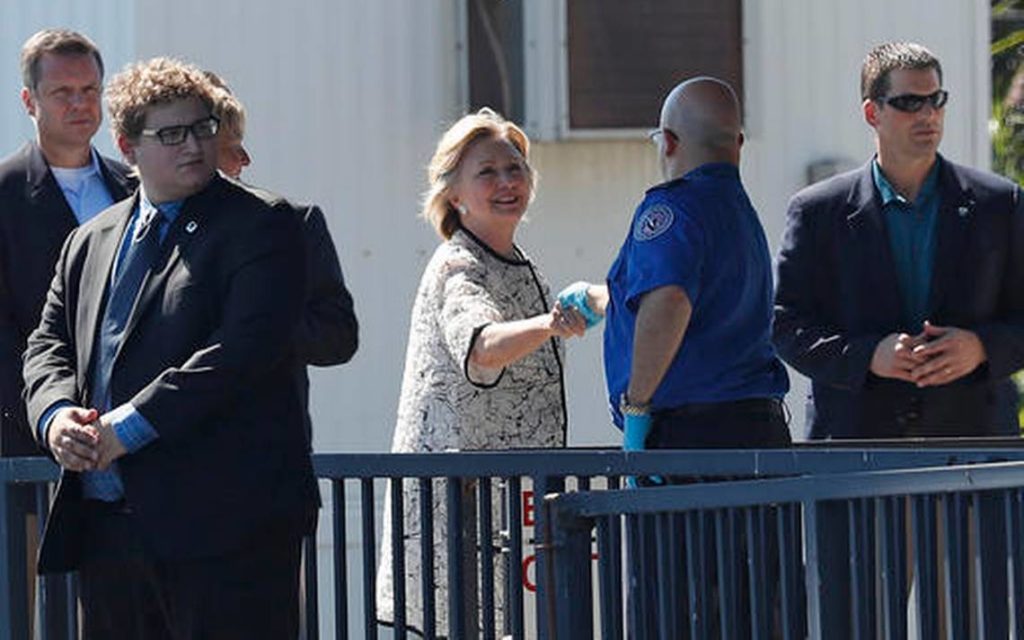
It was a very busy, very lucrative weekend for Hillary Clinton in the summer playground of the East Coast’s moneyed elite. She brunched with wealthy backers at a seaside estate in Nantucket, snacking on shrimp dumplings and crab cakes. A few hours later, she and her husband dined with an intimate party of thirty at a secluded Martha’s Vineyard estate. And on Sunday afternoon, she joined the singer Cher at an “LGBT summer celebration” on the far reaches of Cape Cod. By Sunday evening, Clinton had spoken to more than 2,200 campaign donors. But what she told the crowds remains a mystery. Clinton has refused to open her fundraisers to journalists, reversing nearly a decade of greater transparency in presidential campaigns and leaving the public guessing at what she’s saying to some of her most powerful supporters. It’s an approach that differs from the Democratic president she hopes to succeed. Since his 2008 campaign, President Barack Obama has allowed reporters traveling with him into the backyards and homes of wealthy donors to witness his some of his remarks. While reporters are escorted out of Obama’s events before the start of the juicier Q&A, the president’s approach offers at least a limited measure of accountability that some fear may disappear when Clinton or Republican nominee Donald Trump moves into the White House. “Unfortunately these things have a tendency to ratchet down,” said Larry Noble, the general counsel of the nonprofit Campaign Legal Center. “As the bar gets lower, it’s hard to raise it again.” Clinton’s campaign does release limited details about her events, naming the hosts, how many people attended and how much they gave. That’s more than Trump, whose far fewer fundraisers are held entirely away from the media, with no details provided. Even some Democrats privately acknowledge that Clinton’s penchant for secrecy is a liability, given voters continued doubts about her honesty. While Clinton will occasionally take questions from reporters at campaign stops, she has not held a full-fledged news conference in more than 260 days. Trump has held several. She refuses to release the transcripts of dozens of closed-door speeches she delivered to companies and business associations after leaving the State Department, despite significant bipartisan criticism. And since announcing her presidential bid in April 2015, Clinton has held around 300 fundraising events — only around five have been open to any kind of news coverage. “It does feed this rap about being secretive and being suspicious,” said GOP strategist Whit Ayers. Clinton’s aides have promised for weeks that greater access to her events will be coming soon. But Trump’s lack of disclosure has given her political cover to keep the doors closed, particularly as she conducts a period of intense fundraising before the final sprint to Election Day. While Clinton is expected to make only two public appearances before the end of August, she and her top backers will mingle with donors at no fewer than 54 events according to a fundraising schedule obtained by The Associated Press. Reporters covering these events wait outside, in vans, parking lots and vacant guesthouses — even at homes they’ve entered with Obama at previous events. In Provincetown on Sunday, five reporters crowded into the corner of a parking lot, clinging to a chain-link fence as they tried to catch Clinton’s speech to a crowd of about 1,000 supporters. None of her remarks seemed particularly remarkable: The candidate could faintly be heard running through her standard stump speech. During a Saturday fundraiser at a stately Martha’s Vineyard estate, faint cheers could be heard as Clinton addressed 700 donors on a green lawn overlooking the water. Staffers instructed drivers to roll up the windows of the vans where reporters waited before being ushered into a nearby guesthouse. What a candidate tells his or her rich donors has long been a subject of intense speculation in American politics, in part because the message can be different from what they offer to voters. Obama is still haunted by a comment he made at a 2008 fundraiser in San Francisco, calling voters in small town Pennsylvania “bitter” and saying they cling to “guns or religion.” He learned a lesson: At events during his 2012 campaign, staffers set up a table where guests were expected to check their cellphones before entering. Clinton has tried to ban tweeting, Instagram and other forms of social media at some of her events. Four years ago, a waiter recorded and leaked remarks GOP nominee Mitt Romney made about the “47 percent” of voters who are “dependent on government and would vote for Obama “no matter what” at a closed Florida fundraiser. After his convention, Romney started opening his fundraisers to the media to grab headlines, especially on days when he had no other public appearances. His former aides say that’s not a problem for Clinton. “Quite frankly, if I’m her, it may not be a bad thing to let Donald Trump be the only candidate making news on any given day,” said former Romney campaign aide Ryan Williams. “She can stay dark for five straight days and let Trump trip all over himself.” ___ Keep track of how much Clinton and Trump are spending on television advertising, and where they’re spending it, via AP’s interactive ad tracker https://elections.ap.org/content/ad-spending. Republished with permission of The Associated Press.
Donald Trump’s Alabama Field Director Chess Bedsole paid $64,000 in July
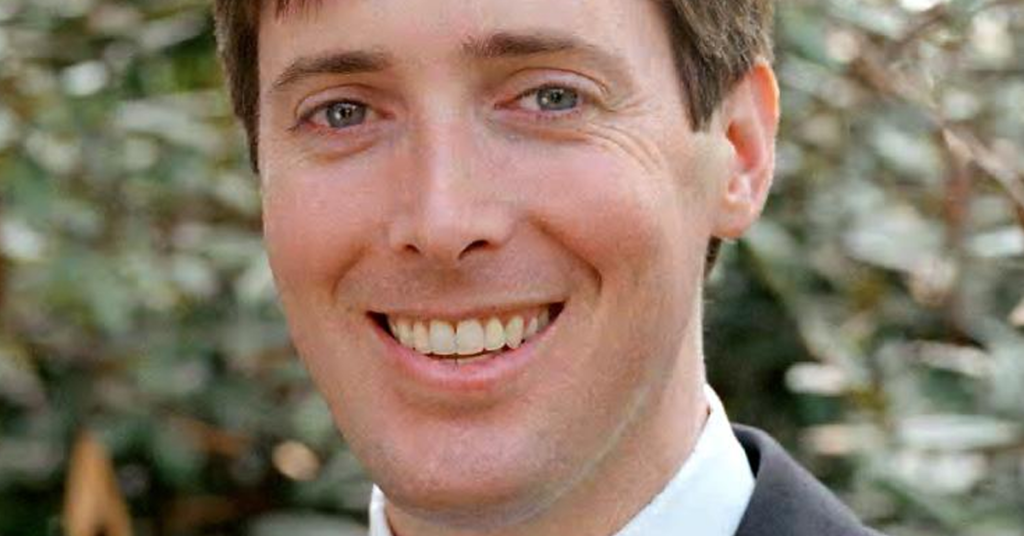
On October 9, 2015, then-presidential long-shot and Republican outsider Donald Trump tapped Alabama’s Chess Bedsole to be the state’s field director. Bedsole, a lawyer and municipal judge who lives in Birmingham, previously served as counsel in the U.S. Senate and was dispatched to Broward County, Florida during the 2000 Presidential election for the recount effort of President George W. Bush. Since returning home to Alabama, Bedsole has represented numerous candidates and officials across the state as well as the Alabama Republican Party. For months, Bedsole hasn’t been paid for his efforts aiding the Trump campaign. That changed in July when the consultant was paid a whopping $64,000 for his services, presumably for January through July of 2016. Prior to July’s payment, his last payment was $15,000 in December — averaging a little more than $5,000 a month in 2015. Bedsole’s recent paycheck is a mysterious one, as the campaign has paid very few employees recently despite the fact spending nearly doubled last month.
Bradley Byrne: New Mobile VA clinic is long overdue
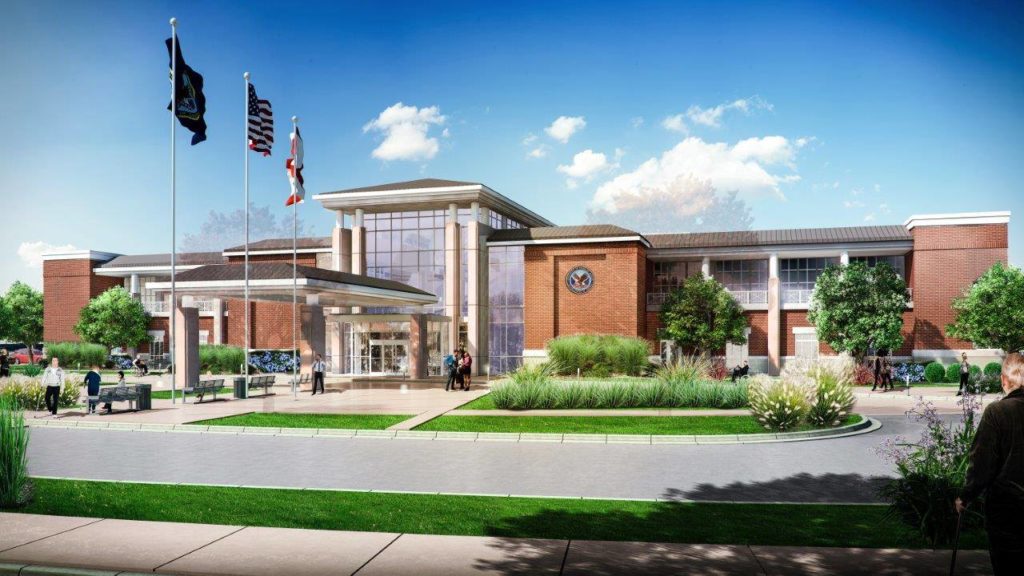
I had long heard the complaints about the Department of Veterans Affairs (VA) clinic in Mobile. Whether it was at town hall meetings, Memorial Day events, or while shopping at the grocery store, veterans always shared their concerns about the Mobile VA outpatient clinic. The Mobile VA clinic is critically important. Southwest Alabama is home to over 50,000 veterans, and our area takes great pride and patriotism in supporting our veterans. It has always been a shame the VA clinic did not live up to the same high standard. Our area has seen growth over the last few years, and this has only made the problems worse. See, the clinic doesn’t just serve veterans from Mobile. Our outpatient clinic is used by veterans from the surrounding counties. Soon after being elected to Congress, I paid a visit to the clinic myself and quickly realized the facility was outdated and far too small. The facility lacked many of the basic resources that you would expect from a modern-day VA clinic. I started to ask questions about the status of a new VA clinic in Mobile. It turned out my predecessor, Congressman Jo Bonner, was able to secure funding for a new VA clinic before he left Congress, but the project had stalled out. Bureaucratic delays and red tape stood in the way. This just simply wasn’t acceptable. Our veterans deserved better. I held a meeting in Washington and Biloxi with relevant VA officials. Then, I sent a letter to VA Secretary Robert McDonald demanding an update on a new Mobile VA clinic. My staff and I kept the foot on the gas and continued demanding updates and answers from the VA. Finally, the perseverance of my team and other local officials paid off. A few weeks ago, my office was notified Mobile would finally be getting a new VA clinic. The new clinic will be located in a convenient location in Tillman’s Corner, right off of I-10. The clinic will be over 65,000 square feet, which is a major improvement over the current facility’s 35,000 square feet. The new clinic will provide space for primary care, audiology and speech pathology, education, eye clinics, mental health, patient advocacy, radiology, Veterans’ Service Organizations, and women’s health. The new, updated clinic will certainly provide better care to our veterans. While the new clinic is music to the ears of our local veterans, I also understand that a new clinic alone will not solve all the problems at the VA. The VA has much larger and deeper issues that a new clinic simply cannot solve. The VA bureaucracy is too big and fosters a culture of complacency. Too many VA officials are allowed to continue underperforming because of the lack of accountability. This is why I will continue to be a forceful advocate in Congress for increasing veteran access to private medical care. I believe every veteran should be able to seek medical care from doctors and hospitals in their local communities instead of having to receive care from VA facilities. I also will keep pushing to improve accountability at the VA. If an employee is failing our veterans, they should be removed from their position, not promoted to a different role. I am proud to represent the 50,000 veterans who call Southwest Alabama home. I am proud of the progress we have made on their behalf but more challenges remain. No matter how difficult this fight may be, I will not back down. Our veterans did not back down from serving us, and I won’t back down from fighting for them. • • • Bradley Byrne is a member of U.S. Congress representing Alabama’s 1st Congressional District.


